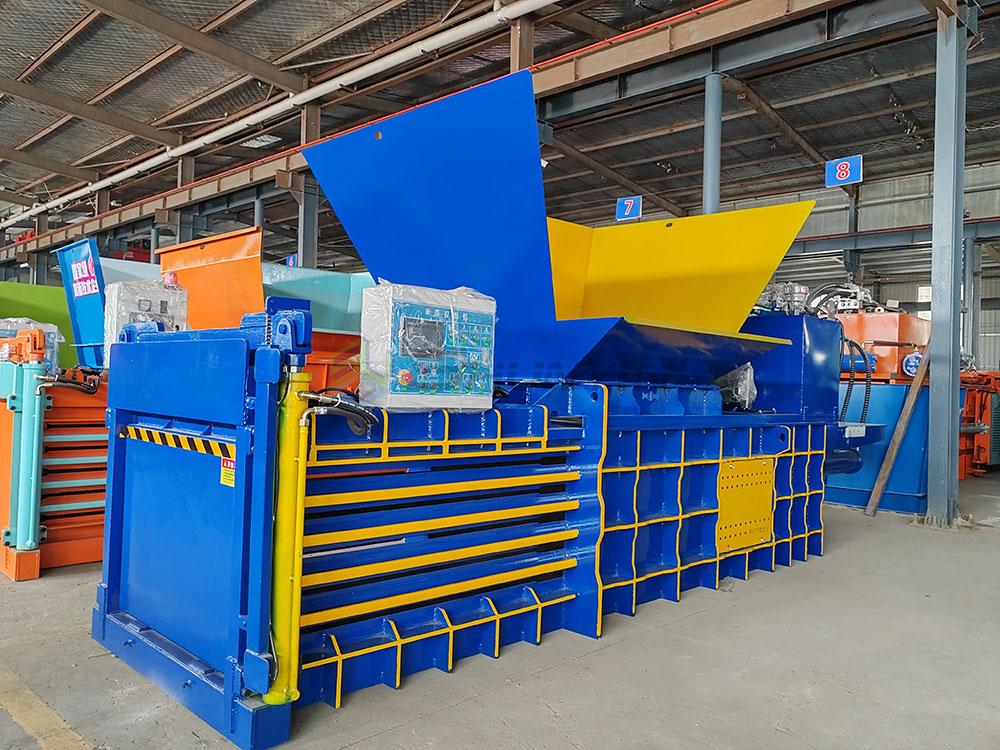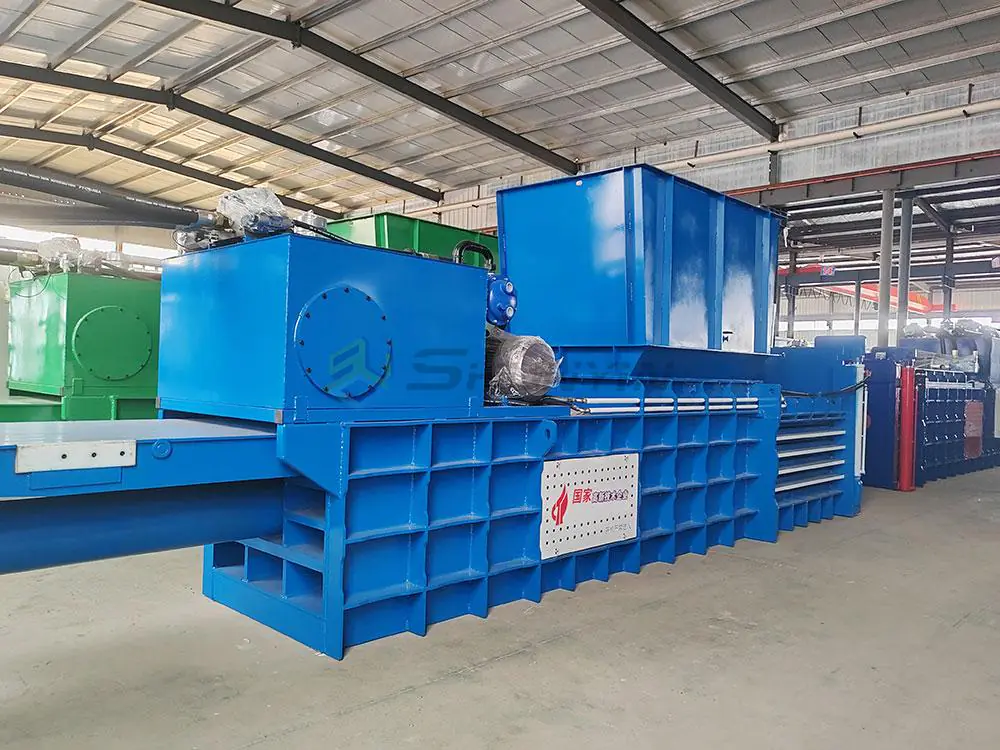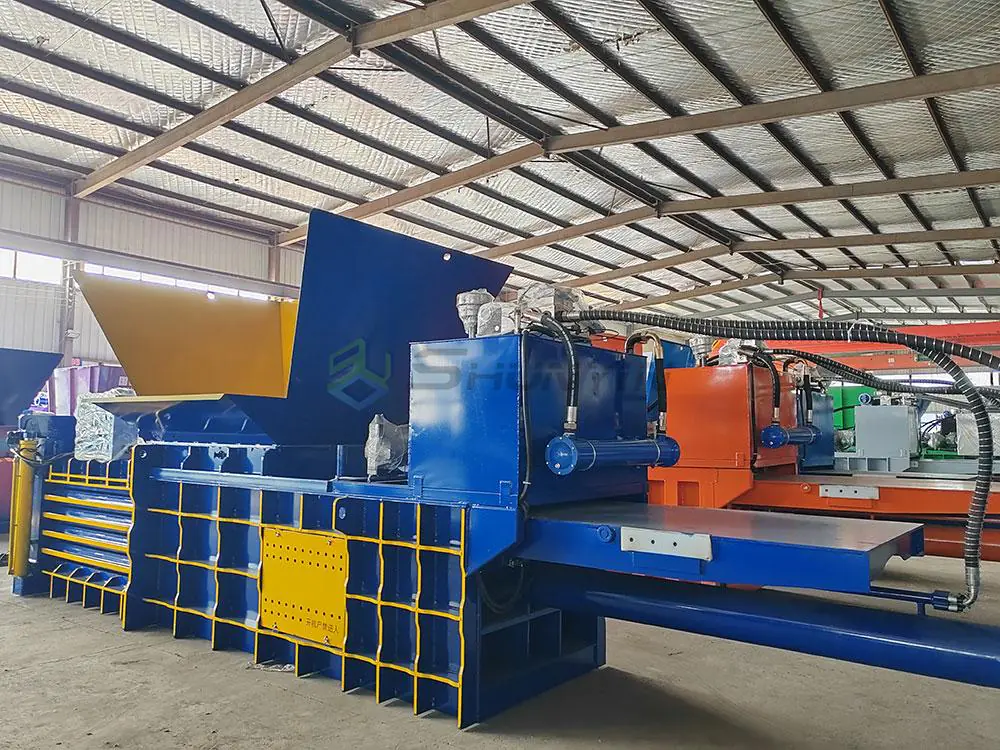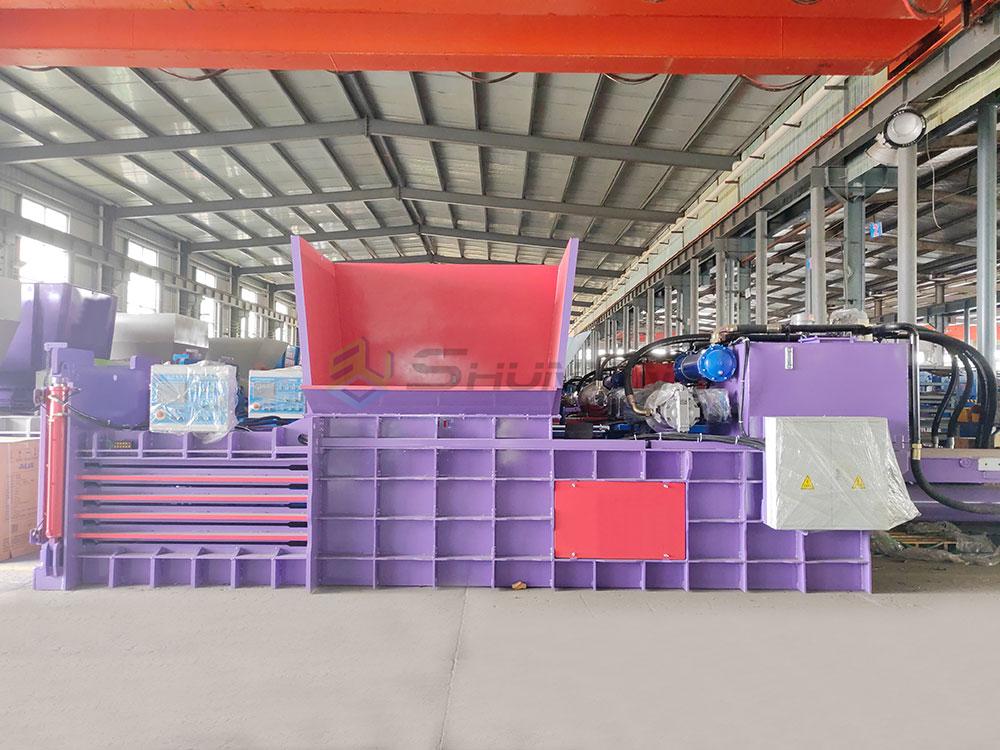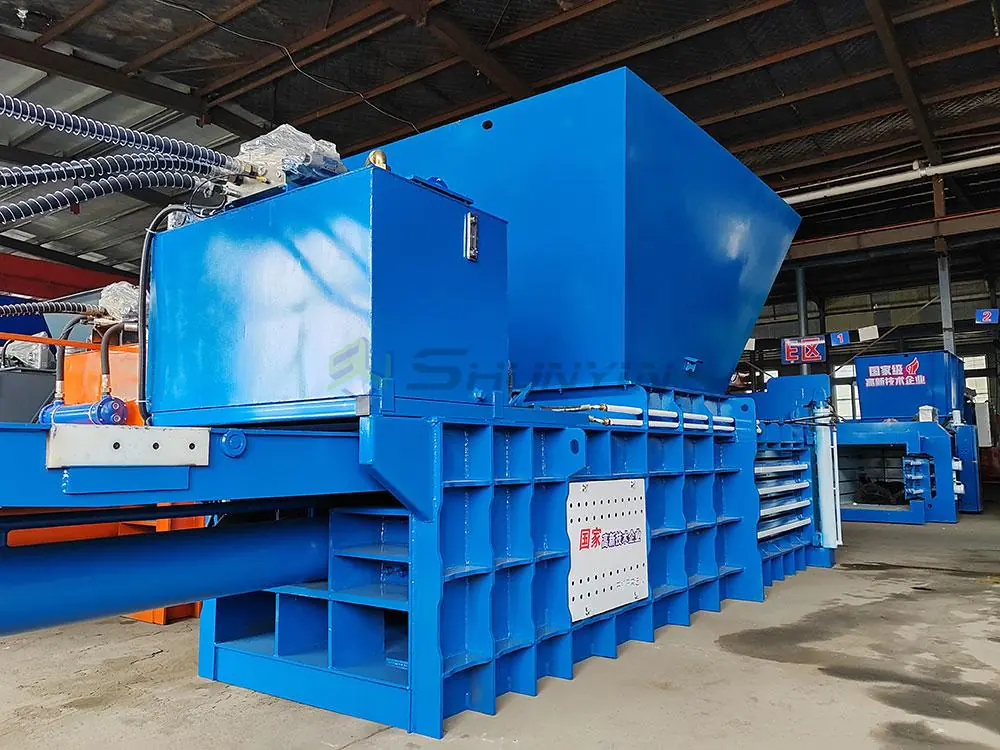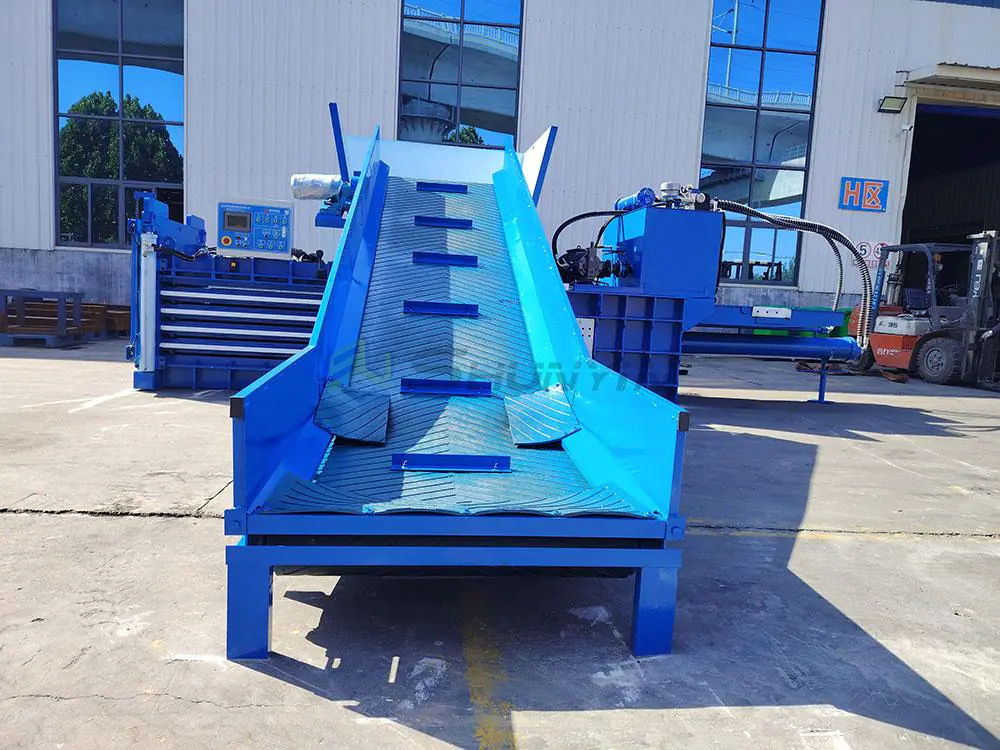
When our Canadian partner Lambert first witnessed 2,800 aluminum cans compressed into a 40kg cube within 90 seconds, his team stood speechless – here’s precisely how this industrial marvel achieves such density transformations.
A hydraulic baling press uses pressurized oil (150-220 bar) to drive steel rams that compact materials into dense blocks. Our machines complete 8-step cycles in 47 seconds through synchronized valve controls, processing 5-18 tons/hour. Key components include twin 16-liter hydraulic cylinders, 38mm oil lines, and PLC-controlled compression chambers with 0.01mm precision.
Three operational aspects prove crucial for achieving optimal bale quality – here’s what our Indonesian client’s 2-year efficiency study revealed about maximizing ROI.
What Is the Use of Hydraulic Baling Press Machine?

Our Japanese client Daikyo processes 28 material types with their 73-ton press, obtaining these key metrics:
Material Processing Matrix
| Material | Pressure Required | Bale Density | Value Increase |
|---|---|---|---|
| Aluminum Foil | 12 tons | 740kg/m³ | 38%↑ |
| Steel Shavings | 45 tons | 2.1t/m³ | 14%↑ |
| PET Bottles | 18 tons | 850kg/m³ | 27%↑ |
| E-Waste | 25 tons | 670kg/m³ | 41%↑ |
| Car Batteries | 32 tons | 1.8t/m³ | 63%↑ |
Additional industrial applications:
- Volume reduction for maritime shipping
- Hazardous waste encapsulation
- Spill containment (oily metals)
- Automated material tracking (RFID tags)
How Does a Baler Machine Work Step by Step?

Our Vietnam client IPN processes 11.8 tons/hour using this exact workflow:
6-Stage Operational Cycle
| Stage | Action | Technical Specs | Duration |
|---|---|---|---|
| 1. Loading | Infeed conveyor (1-3m/min) | 1.6m belt width | 12 sec |
| 2. Pre-compression | 10-ton reducer | 10mm plate | 18 sec |
| 3. Main compression | 35-ton ram | 165 bar pressure | 34 sec |
| 4. Tying | Auto poly cord system | 4-6 straps | 16 sec |
| 5. Ejection | Hydraulic arm push | 1.8m stroke | 9 sec |
| 6. Reset | Chamber purging | Optical sensors | 5 sec |
Critical performance metrics:
- Hydraulic oil temperature: 42-58°C
- Pump pressure fluctuation: ±2.5 bar
- Motor speed: 1450 RPM
- Energy consumption: 0.94kWh/ton
How Does a Bale Press Work?

After servicing our 200th machine last quarter, we’ve documented these essential mechanics:
Hydraulic System Breakdown
| Component | Function | Specification |
|---|---|---|
| Hydraulic Pump | Creates oil flow | 22kW, 160 l/min |
| Cylinders | Generate force | 200mm bore, 1.2m stroke |
| Valve Block | Controls direction | 4/3-way solenoid |
| Accumulator | Maintains pressure | 10-liter capacity |
| Oil Cooler | Regulates temp | Water-to-oil 20kW |
Critical force calculations:
- Basic formula: Force = Pressure × Area
- Pump pressure: 190 bar = 190 × 10⁵ Pa
- Cylinder area: π × (0.1m)² = 0.0314m²
- Force output: 190×10⁵ × 0.0314 = 600kN ≈ 61 tons
Conclusion
Modern hydraulic baling combines industrial power with precision engineering. With 87 active systems in North America alone, our solutions deliver guaranteed results. Get your free cycle analysis – includes throughput optimization from our engineers.


